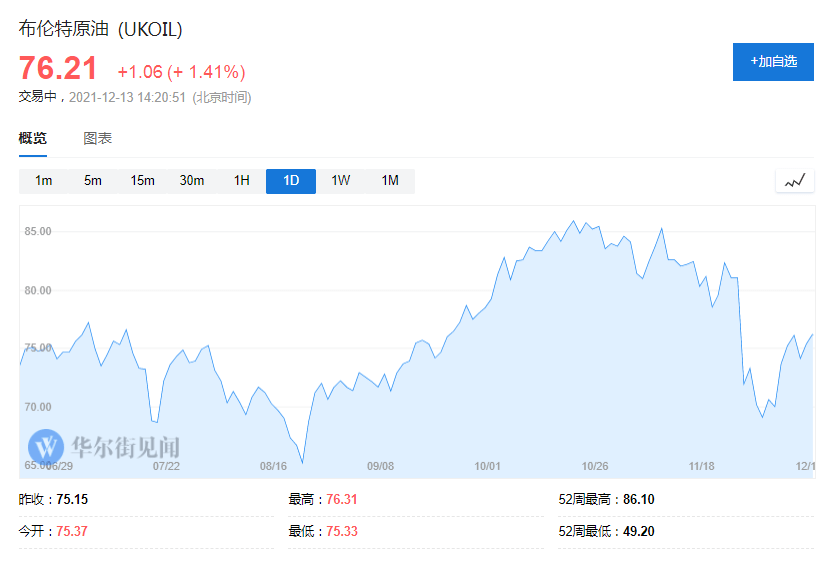Original title: Joint dumping and storage of crude oil "thunder and heavy rain point is small"? The United States took action this week and other countries have not followed suit
It has been three weeks since the United States announced the joint release of strategic oil reserves (SPR) with major oil consuming countries, but so far, few other countries have made substantive progress except the United States.
On December 11 local time, the U.S. Department of Energy announced that it would directly sell 18 million barrels of crude oil from SPR on December 17 to reduce gasoline prices.
In addition, the United States also awarded the 4.8 million barrels of oil released in the first round to ExxonMobil, the largest oil company in the United States, in the form of exchange sales.
U.S. energy secretary Jennifer Granholm said: "the president correctly believes that Americans should get relief now and has authorized the use of SPR to deal with market imbalances and reduce consumer costs."
Granholm said: "as the DOE advances the transaction, it will continue to accept the exchange requests of relevant parties and approve them as appropriate to solve the problem of supply interruption."
According to the US Department of energy, a total of 50 million barrels of crude oil will be released from the strategic oil reserves through direct sales and exchange sales.
Of these, 18 million barrels were released through direct sales. Another 32 million barrels of oil are released to increase market supply in the short term, but the main purpose is for exchange, that is, buyers who buy these strategic oil reserves need to return the same amount of oil to the U.S. government from 2022 to 2024.
The countries that jointly announced the dumping of reserves with the United States include major oil consuming countries such as Japan, South Korea, India and the United Kingdom, but so far, the progress of these countries has almost stagnated at the time of the joint announcement of the dumping of reserves.
Among them, India is the only country that has determined its production. It has promised to release 5 million barrels of oil, and its SPR is about 32 million barrels. However, at present, the timetable for the release of reserves has not been determined. The head of India Strategic Petroleum Reserve Co., Ltd. said on December 3 that he was still waiting for the federal government's suggestions on how and when to sell crude oil.
According to Nikkei News reported on the 23rd, Japan decided to release about 4.2 million barrels of oil, but the official did not announce the production and time.
South Korea announced on the same day that it would decide the details of production and time after discussion with partner countries, but said it would be about 3.5 million barrels.
A British government spokesman said later on the 23rd that Britain would allow the voluntary release of privately held oil reserve projects, about 1.5 million barrels, in response to the US led action.
In other words, no country has really followed up with the United States to throw reserves.
According to Bloomberg, the market began to doubt whether these countries would follow up, especially after the emergence of Omicron led to the collapse of global oil prices. However, there are signs that the new variant may not be as bad as originally thought, and oil prices are gradually rising and making up for half of the decline. If oil prices continue to rise, these countries may have more incentive to release reserves.


In addition, Bloomberg quoted John Driscoll, chief strategist of JTD energy service, an energy market research agency, as saying that such behavior similar to buyer cartels makes it difficult for these countries to do.
Driscoll said: "they should not undermine relations with major producers in order to satisfy a U.S. president who will be re elected in a few years." They may also be "reluctant to use their reserves before the peak demand in winter, because supply disruption can lead to major problems."
主营业务:website,cms,wap website


 扫一扫,关注我们最新消息
扫一扫,关注我们最新消息 